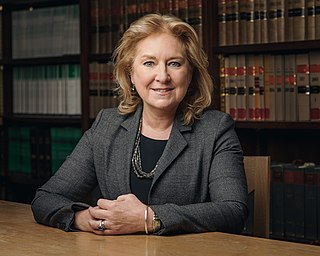
Samuel Smiles was a British author and government reformer. Although he campaigned on a Chartist platform, he promoted the idea that more progress would come from new attitudes than from new laws. His primary work, Self-Help (1859), promoted thrift and claimed that poverty was caused largely by irresponsible habits, while also attacking materialism and laissez-faire government. It has been called "the bible of mid-Victorian liberalism" and had lasting effects on British political thought.

Sidney James Webb, 1st Baron Passfield, was a British socialist, economist and reformer, who co-founded the London School of Economics. He was an early member of the Fabian Society in 1884, joining, like George Bernard Shaw, three months after its inception. Along with his wife Beatrice Webb and with Annie Besant, Graham Wallas, Edward R. Pease, Hubert Bland and Sydney Olivier, Shaw and Webb turned the Fabian Society into the pre-eminent politico-intellectual society in Edwardian England. He wrote the original, pro-nationalisation Clause IV for the British Labour Party.

The Lady Chief Justice of England and Wales is the head of the judiciary of England and Wales and the president of the courts of England and Wales.

In the Westminster system used in many Commonwealth realms, the King-in-Parliament is a constitutional law concept that refers to the components of parliament – the sovereign and the legislative houses – acting together to enact legislation.

Richard Howard Stafford Crossman was a British Labour Party politician. A university classics lecturer by profession, he was elected a Member of Parliament in 1945 and became a significant figure among the party's advocates of Zionism. He was a Bevanite on the left of the party, and a long-serving member of Labour's National Executive Committee (NEC) from 1952.

Ultra vires is a Latin phrase used in law to describe an act that requires legal authority but is done without it. Its opposite, an act done under proper authority, is intra vires. Acts that are intra vires may equivalently be termed "valid", and those that are ultra vires termed "invalid".

Gordon Hewart, 1st Viscount Hewart, was a politician and judge in the United Kingdom.

Sir Herman Henry Slesser was an English barrister and British Labour Party politician who served as Solicitor-General and Lord Justice of Appeal.

Richard Walter John Hely-Hutchinson, 6th Earl of Donoughmore, styled Viscount Suirdale until 1900, was an Anglo-Irish peer and Conservative politician. He served as Under-Secretary of State for War under Arthur Balfour between 1903 and 1905.
The Soulbury Commission was a prime instrument of constitutional reform in British Ceylon that succeeded the Donoughmore Commission. It was announced in 1944 and headed by Herwald Ramsbotham, 1st Viscount Soulbury. The immediate basis for the appointment of a commission for constitutional reforms was the 1944 draft constitution of the Board of Ministers, headed by D.S. Senanayake. This commission ushered in the Soulbury Constitution and independence to the Dominion of Ceylon in 1948. Its constitutional recommendations were largely those of the 1944 Board of Ministers' draft, a document reflecting the influence of Senanayake and his main advisor, Sir Ivor Jennings.

United Kingdom administrative law is part of UK constitutional law that is designed through judicial review to hold executive power and public bodies accountable under the law. A person can apply to the High Court to challenge a public body's decision if they have a "sufficient interest", within three months of the grounds of the cause of action becoming known. By contrast, claims against public bodies in tort or contract are usually limited by the Limitation Act 1980 to a period of 6 years.

The United Kingdom constitutional law concerns the governance of the United Kingdom of Great Britain and Northern Ireland. With the oldest continuous political system on Earth, the British constitution is not contained in a single code but principles have emerged over centuries from common law statute, case law, political conventions and social consensus. In 1215, Magna Carta required the King to call "common counsel" or Parliament, hold courts in a fixed place, guarantee fair trials, guarantee free movement of people, free the church from the state, and it enshrined the rights of "common" people to use the land. After the English Civil War and the Glorious Revolution 1688, Parliament won supremacy over the monarch, the church and the courts, and the Bill of Rights 1689 recorded that the "election of members of Parliament ought to be free". The Act of Union 1707 unified England, Wales and Scotland, while Ireland was joined in 1800, but the Republic of Ireland formally separated between 1916 and 1921 through bitter armed conflict. By the Representation of the People Act 1928, almost every adult man and woman was finally entitled to vote for Parliament. The UK was a founding member of the International Labour Organization (ILO), the United Nations, the Commonwealth, the Council of Europe, and the World Trade Organization (WTO).

The Fabian Society is a British socialist organisation whose purpose is to advance the principles of social democracy and democratic socialism via gradualist and reformist effort in democracies, rather than by revolutionary overthrow. The Fabian Society was also historically related to some of the furthest left factions of radicalism, a left-wing liberal tradition.

Judicial review is a process under which a government's executive, legislative, or administrative actions are subject to review by the judiciary. In a judicial review, a court may invalidate laws, acts, or governmental actions that are incompatible with a higher authority. For example, an executive decision may be invalidated for being unlawful, or a statute may be invalidated for violating the terms of a constitution. Judicial review is one of the checks and balances in the separation of powers—the power of the judiciary to supervise the legislative and executive branches when the latter exceed their authority. The doctrine varies between jurisdictions, so the procedure and scope of judicial review may differ between and within countries.

The constitution of the United Kingdom comprises the written and unwritten arrangements that establish the United Kingdom of Great Britain and Northern Ireland as a political body. Unlike in most countries, no official attempt has been made to codify such arrangements into a single document, thus it is known as an uncodified constitution. This enables the constitution to be easily changed as no provisions are formally entrenched.

Scots law is the legal system of Scotland. It is a hybrid or mixed legal system containing civil law and common law elements, that traces its roots to a number of different historical sources. Together with English law and Northern Irish law, it is one of the three legal systems of the United Kingdom. Scots law recognises four sources of law: legislation, legal precedent, specific academic writings, and custom. Legislation affecting Scotland and Scots law is passed by the Scottish Parliament on all areas of devolved responsibility, and the United Kingdom Parliament on reserved matters. Some legislation passed by the pre-1707 Parliament of Scotland is still also valid.

Parliamentary sovereignty is an ancient concept central to the functioning of the constitution of the United Kingdom but which is also not fully defined and has long been debated. Since the subordination of the monarchy under parliament, and the increasingly democratic methods of parliamentary government, there have been the questions of whether parliament holds a supreme ability to legislate and whether or not it should.

The concept of the separation of powers has been applied to the United Kingdom and the nature of its executive, judicial and legislative functions. Historically, the apparent merger of the executive and the legislature, with a powerful Prime Minister drawn from the largest party in parliament and usually with a safe majority, led theorists to contend that the separation of powers is not applicable to the United Kingdom. However, in recent years it does seem to have been adopted as a necessary part of the UK constitution.

The Separation of powers in Singapore is governed by Constitution of the Republic of Singapore, which splits the power to govern the country between three branches of government – the parliament, which makes laws; the executive, which executes them; and the judiciary, which enforces them. Each branch, while wielding legitimate power and being protected from external influences, is subject to a system of checks and balances by the other branches to prevent abuse of power. This Westminster constitutional model was inherited from the British during Singapore's colonial years.
Parliamentary sovereignty, also called parliamentary supremacy or legislative supremacy, is a concept in the constitutional law of some parliamentary democracies. It holds that the legislative body has absolute sovereignty and is supreme over all other government institutions, including executive or judicial bodies. It also holds that the legislative body may change or repeal any previous legislation and so it is not bound by written law or by precedent.
















